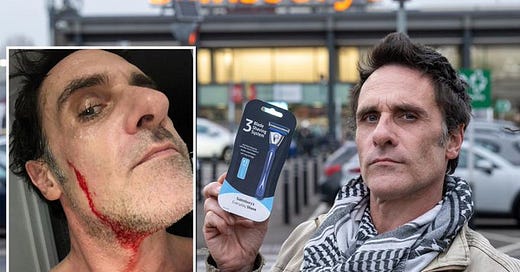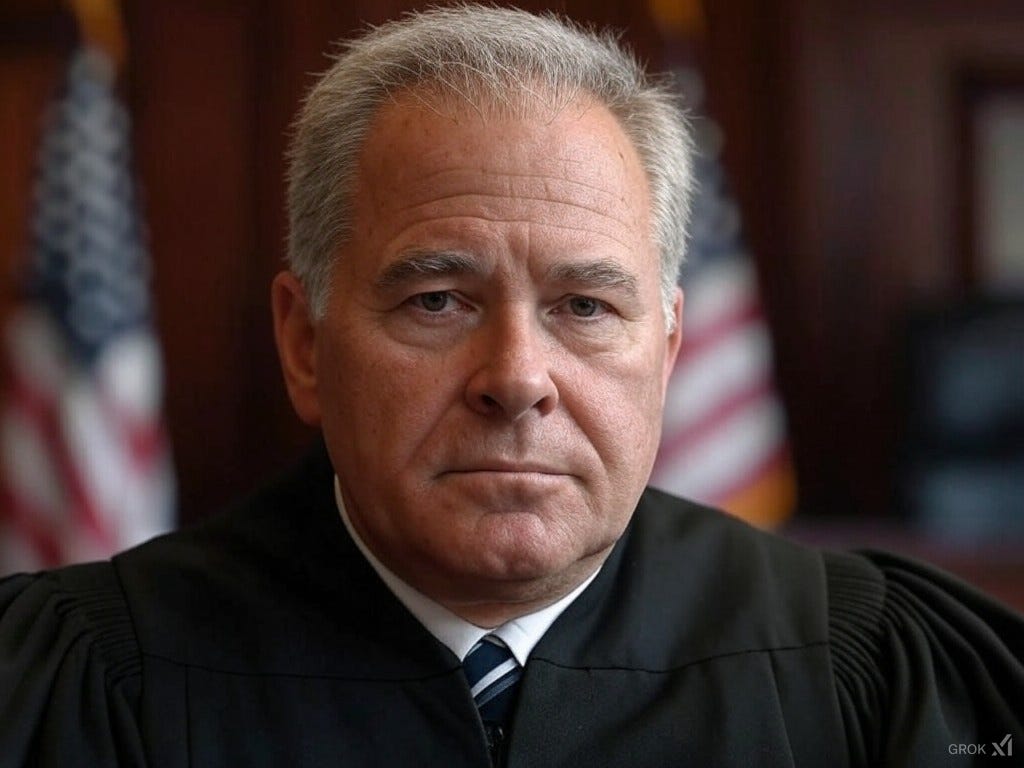🪒The $6,250 Shave: What a London Man's Victory Against Big Razor Reveals About Our Legal System
From razors to refrigerators, individual consumers are winning david-vs-goliath battles
If you believe in yourself and have dedication and pride - and never quit, you'll be a winner. The price of victory is high but so are the rewards.
When Nick Silverthorn purchased a $3 razor from his local Sainsbury's last Boxing Day, he couldn't have known he was about to expose a fascinating intersection of consumer rights, corporate accountability, and the evolving landscape of product liability law.
The story begins simply enough: a man, a store-brand razor, and two cuts that wouldn't stop bleeding. But beneath this seemingly straightforward narrative lies a more complex tale about power dynamics in modern commerce and the surprising accessibility of legal remedies against corporate giants.
Silverthorn's case is remarkable not for its severity – though the cuts took weeks to heal and allegedly caused recurring nightmares – but for its success. In an era where corporate legal departments routinely overwhelm individual plaintiffs with procedural hurdles and lengthy delays, Silverthorn secured a $6,250 settlement in just ten months.
The settlement's speed and size raise intriguing questions. Wilkinson Sword, the manufacturer behind Sainsbury's store-brand razors, chose to settle quickly and quietly, without admitting liability. This decision speaks volumes about the calculus major corporations make when faced with individual claims that could spiral into broader consumer safety investigations.
Let's be clear about what we're seeing: A part-time landscape gardener took on one of the world's largest razor manufacturers and won. But this victory isn't just about the money. It's about the precedent it sets for consumer empowerment in an age of mass production and corporate distance from end users.
What makes this case particularly noteworthy is Silverthorn's preservation of evidence. In an age where social media often serves as our first recourse for consumer complaints, Silverthorn chose a more methodical approach. He kept the razor, the box, the receipt, and had relatives photograph his injuries – actions that transformed a potential David vs. Goliath legal battle into a straightforward product liability claim.
The swift settlement suggests something corporate America would prefer we didn't notice: The legal system remains accessible to ordinary citizens who document their cases properly. While tort reform advocates often decry "frivolous lawsuits," Silverthorn's case demonstrates how product liability law continues to serve its intended purpose – holding manufacturers accountable for their products' safety, regardless of their market position or legal resources.
But there's a darker undertone here. How many similar incidents go unreported because consumers assume they can't challenge major corporations? How many defective products remain in circulation because users blame themselves rather than considering manufacturing flaws?
The implications extend beyond personal care products. This case exemplifies how individual consumer actions can force corporate accountability in an era where regulatory oversight is often stretched thin. It's a reminder that the legal system, for all its flaws, can still serve as a leveling force between individual consumers and corporate entities.
Perhaps most tellingly, neither Sainsbury's nor Wilkinson Sword provided comments for the original reporting. Their silence speaks to a corporate culture that prefers to handle such matters quietly, through settlements rather than public discourse about product safety and quality control.
As product liability expert Jack Klein noted, "Not many people who cut themselves shaving would think to sue one of the World's biggest razor companies." But perhaps more should. In an age of increasing corporate consolidation and diminishing consumer power, Silverthorn's case serves as a reminder that individual action, properly documented and legally pursued, can still pierce corporate armor.
**Attorney Advertising**
Do you have cancer, or have been injured due to the wrongdoings of large corporations?
If you or a loved one has suffered cancer, injury or even death by any of the following
products, find out if you are eligible to receive compensation:
**Attorney Advertising**
The $6,250 settlement may seem modest in the grand scheme of corporate finances, but its real value lies in the precedent it sets and the message it sends: Corporate accountability doesn't always require class action suits or regulatory intervention. Sometimes, it just takes one consumer willing to preserve evidence and pursue justice through proper channels.

As we navigate an increasingly complex consumer landscape, Silverthorn's case offers a blueprint for individual action against corporate negligence. It's a reminder that beneath the surface of every "weird but true" headline lies a deeper story about power, accountability, and the mechanisms we've built to balance them.
Disclaimer: Some information on this site may be considered attorney advertising under your state’s laws and ethical rules. This legal news site and its content is for general information only and is not legal advice. Information on this site may be incomplete or out-of-date.
No attorney-client relationship is created between you and any attorney who publishes content or online forms on this site. Hiring a lawyer is an important decision that should not be based solely on advertisements.






He sued because he cut himself shaving? That’s as frivolous as a lawsuit can get. This isn’t David triumphing over the corporate Goliath. This is a company that makes razor blades tossing a few bucks at a litigious asshole to shut him up.
Interesting, but what was the basis for the suit? Razors are inherently dangerous..,